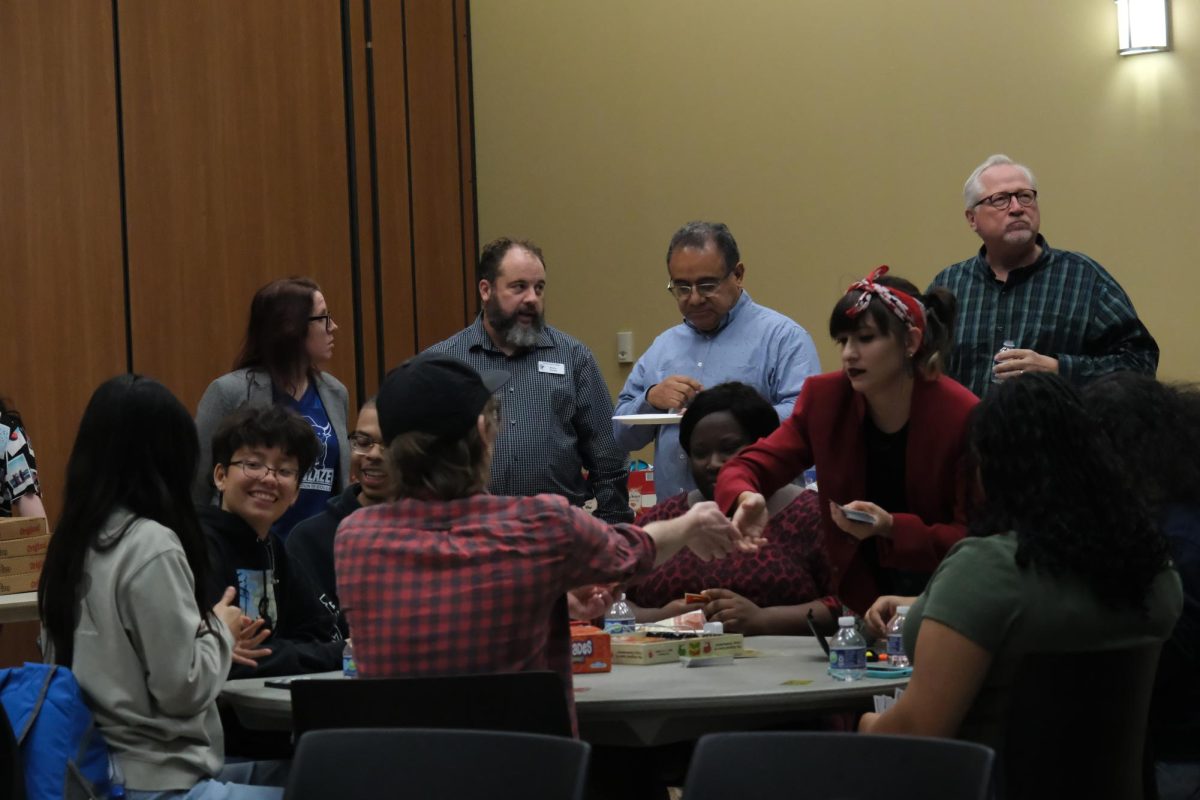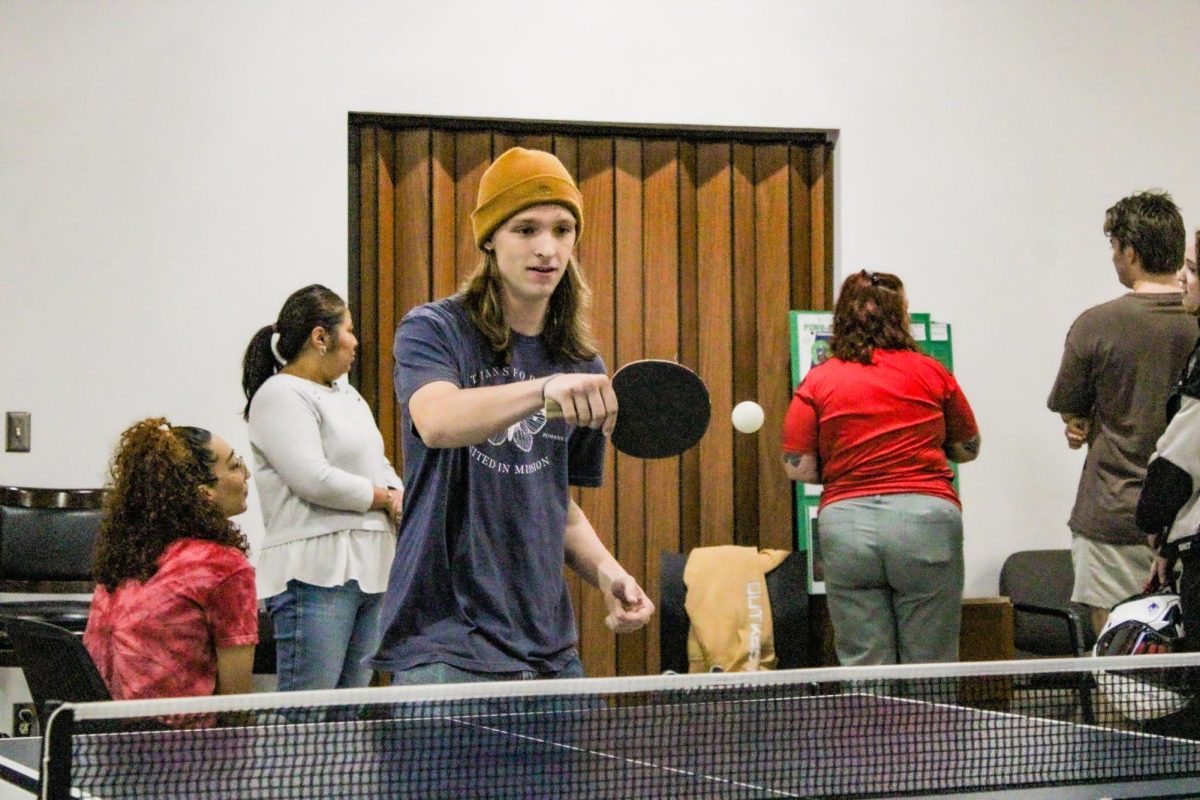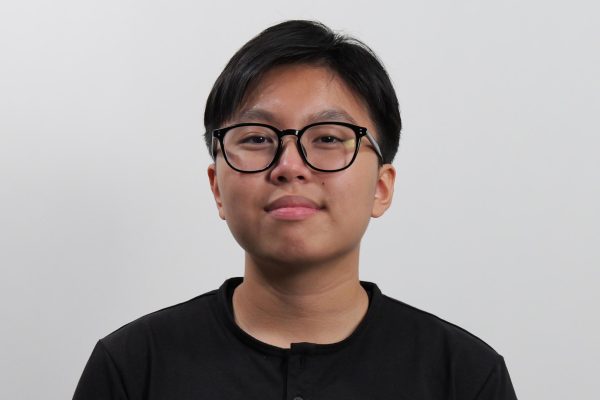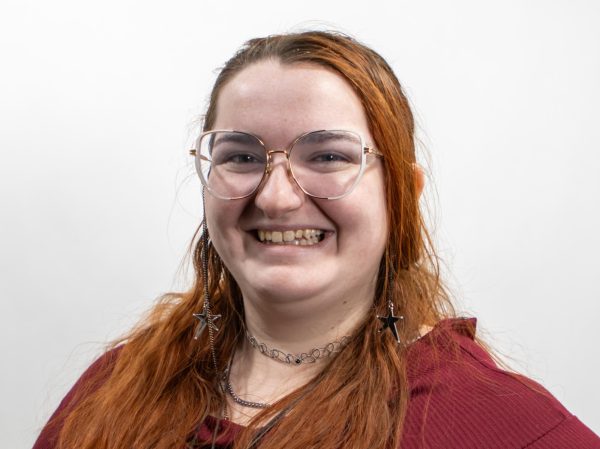Mark Anderson has been a philosophy professor at TR for 15 years and has published several papers for philosophy journals. He is also the sponsor of the Lost in Thought Club, a philosophy club on TR. Anderson discussed his views on academia and teaching during a recent interview with The Collegian.
Q: What do you do outside of philosophy and teaching?
A: I have a great deal of interest in literature. A lot of what I’m doing outside of the fold might still be related to my vocation. Yesterday, I started a book on Buddhist thought, for instance. Now this is not a vocational requirement, but it’s something I do because I’m now teaching the world religions class, and I kind of need to make sure I’m current. I confess that I do game.
Q: I’ve noticed you have this very strong presence when you’re standing in front of the class. Have you ever considered doing radio?
A: I could imagine being on a radio show, and my poor listeners will be tearing their hair out in frustration waiting for me to get to the point as I’m trying to discover how I really want to whatever carve this thing where the joints are, how to exactly identify the pressure points of an issue. Talk radio people are much more verbose, loquacious and quick in trying to get their zingers in, and that’s not for me. It takes me a while to get to the point if I’m doing it on the fly. So, I think that if I were in radio, I would torture the listeners rather than entertain them.
Q: If you weren’t a philosophy professor, what would you have been?
A: I went into teaching because it was the natural domain of somebody who was interested in these issues. What do you do if you’re interested in these issues? You talk about it. Now, if I’m not talking about it in in front of a classroom, what am I doing? I’m probably under a bridge somewhere, panhandling.
Q: You insert a lot of your own personal experiences and anecdotes in class. Do you find it’s easier to teach when you have a story to tell?
A: Because you’re dealing with very abstract ideas, you have to make them concrete. I’ve had a concrete history for 40-some-odd years, and so I can draw from those stories. Sometimes you can draw from other stories too, but you have to do something to make it relatable. So yes, personal anecdotes are pretty handy, and there can be other stories as well that you pull from.
Q: What did you do before you came to TCC? You’ve said you were a vacuum salesman?
A: I was a Kirby salesman for two weeks. I was in grad school. And in the summertime when you’re in grad school, you’re basically living in poverty. So you’re doing what you need to do to make ends meet.
Q: Do you have anything else to say to TCC students?
A: Stay in the game. Learn a lot. There’s a world of opportunity out there, and the goal of education is to connect you to that opportunity. So, take advantage of this. This institution is performing a vital function for the community. Employers in the county are counting on us.
Q: What made you want to go in philosophy?
A: I guess I’ve always had interest in ultimate issues. Philosophy was not my major as an undergraduate. I was a literature major and a philosophy minor. But usually I find literature, the best works of literature, to be interesting because they tap into ultimate issues using the medium of real life rather than mere abstraction, and that was kind of what brought me into thinking about philosophical issues.
Q: What would you say you’re most proud of in your work?
A: I’m the sponsor of a club here at Trinity River. One of the very first presidents of that club, just a few weeks ago, he got back in touch with me, and he came back and he attended a meeting with the club. And you can see that the club made it made a difference. Now the club is just one thing, but when you’re kind of realized that people who haven’t been around for a decade and a half or whatever, still remember the class, and they still remember the discussions. Okay, that’s kind of what matters more…I think I’m more proud of that than any silly academic projects I might have on the side.






































